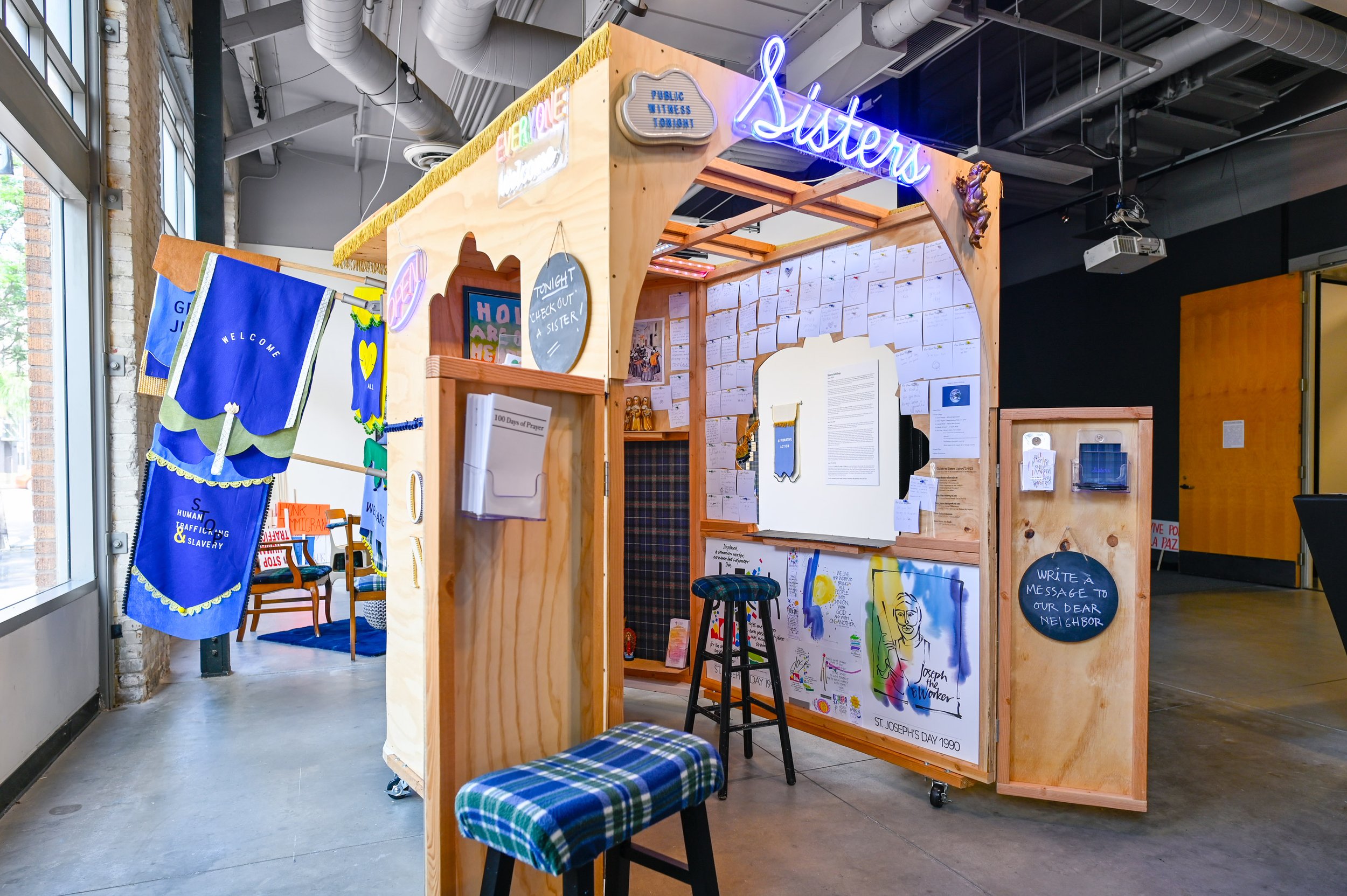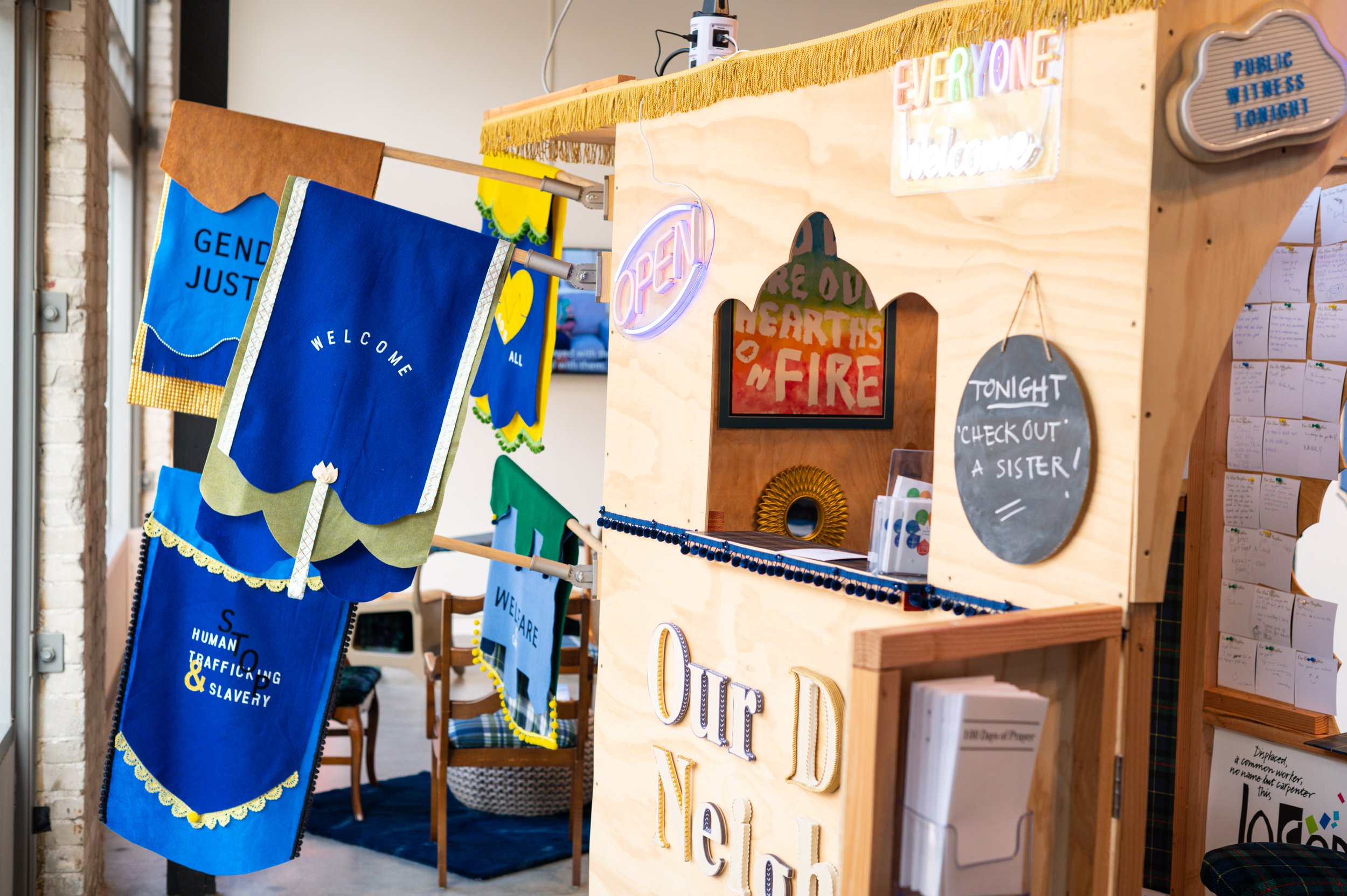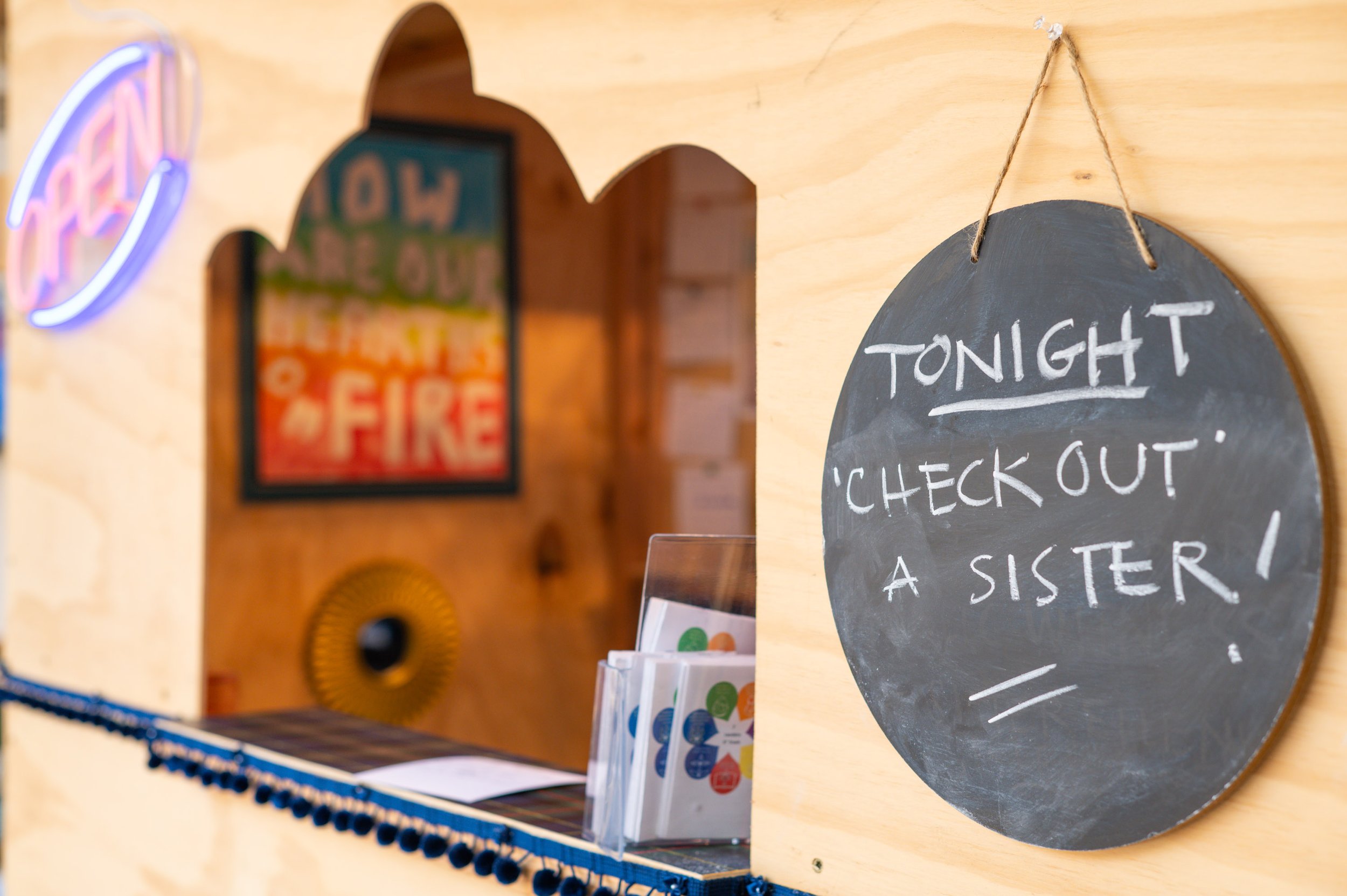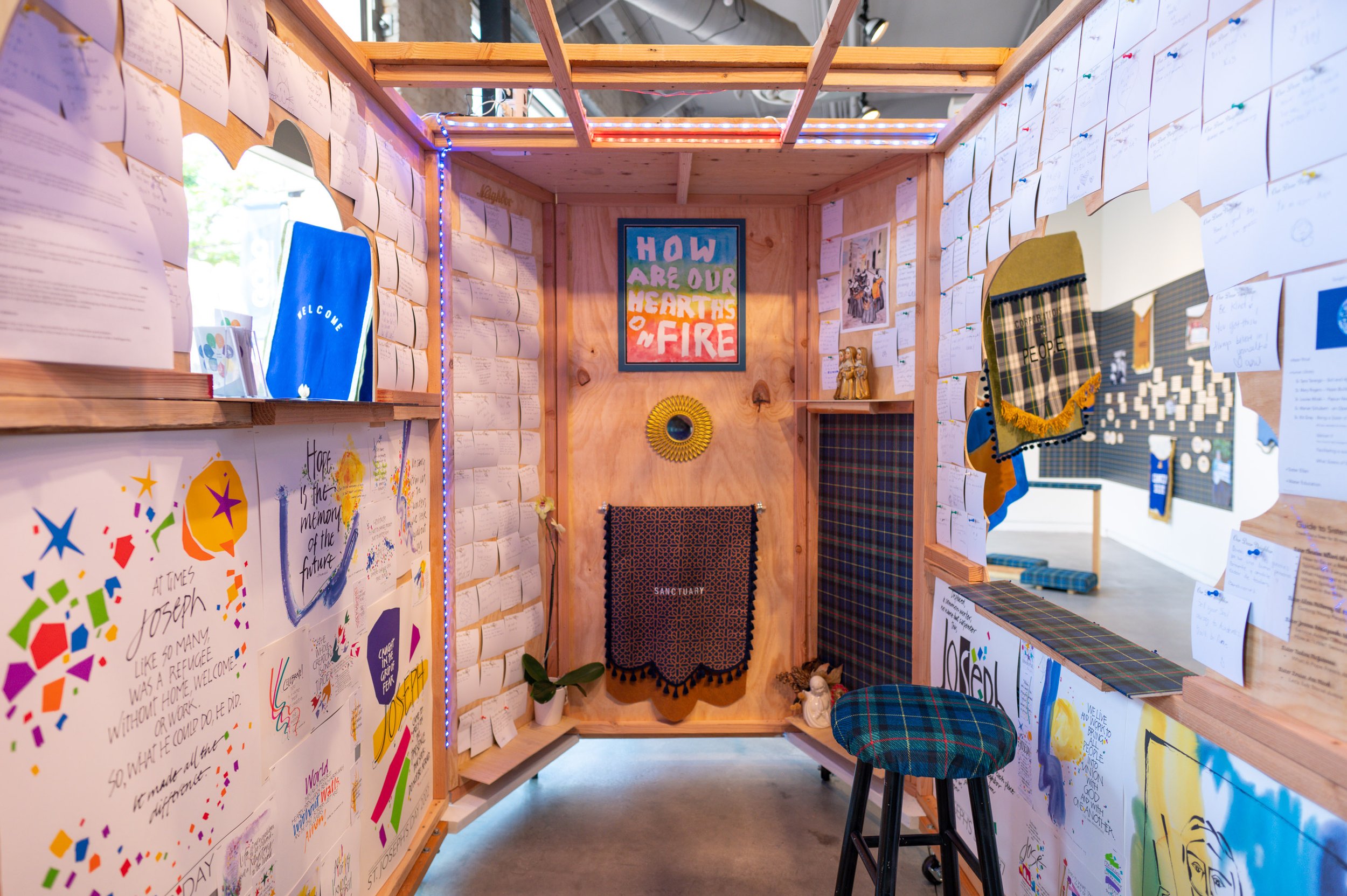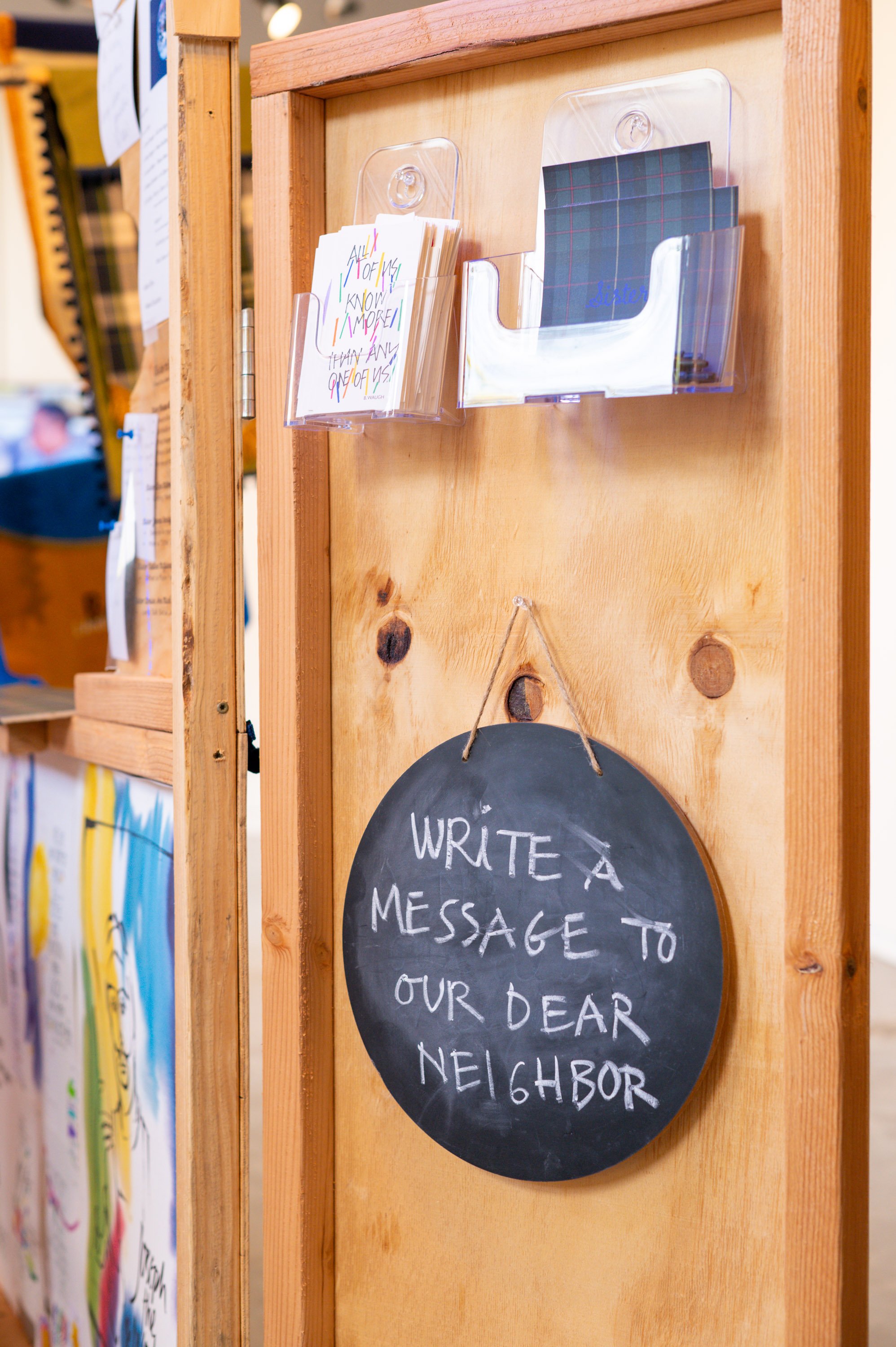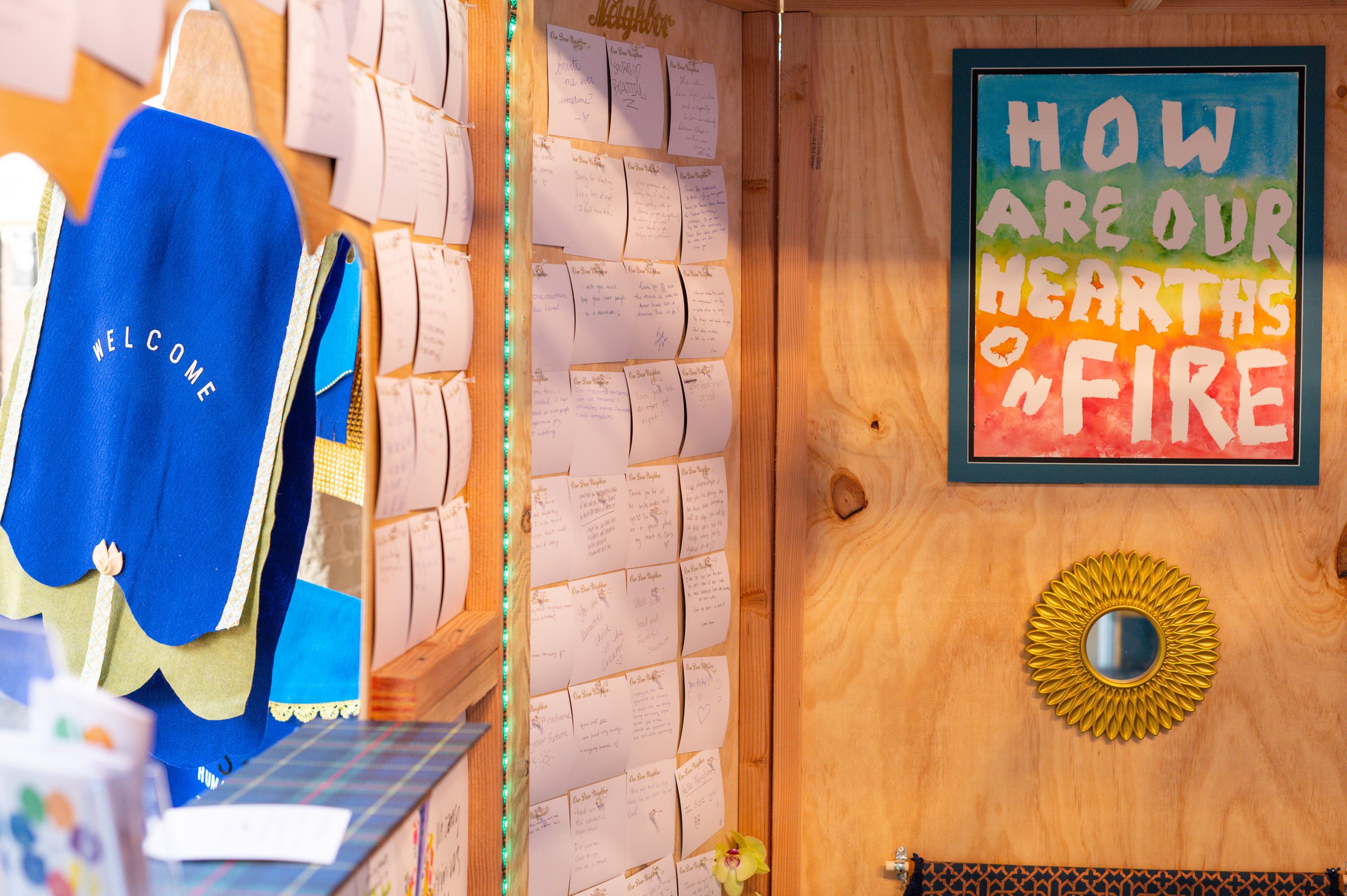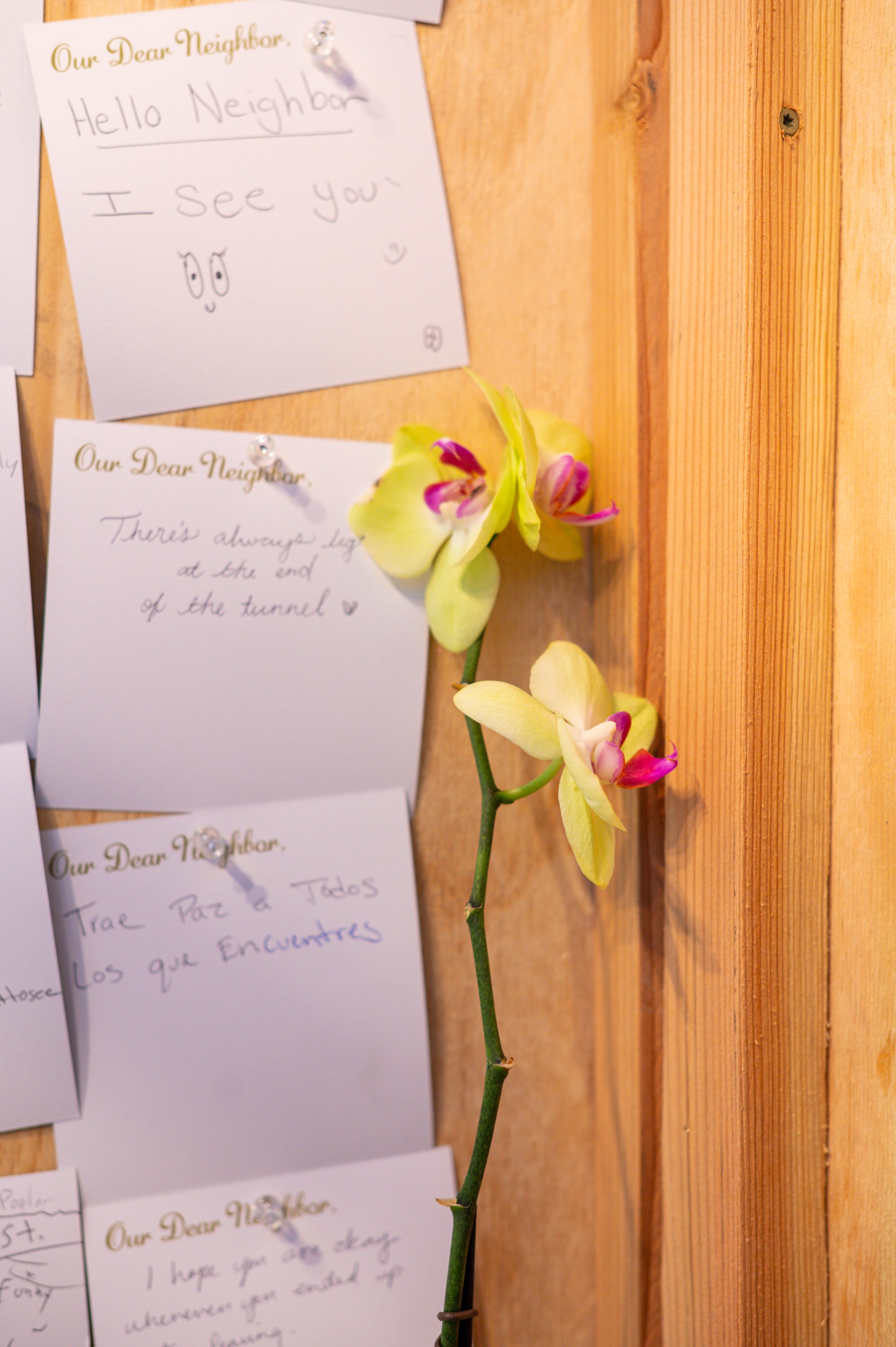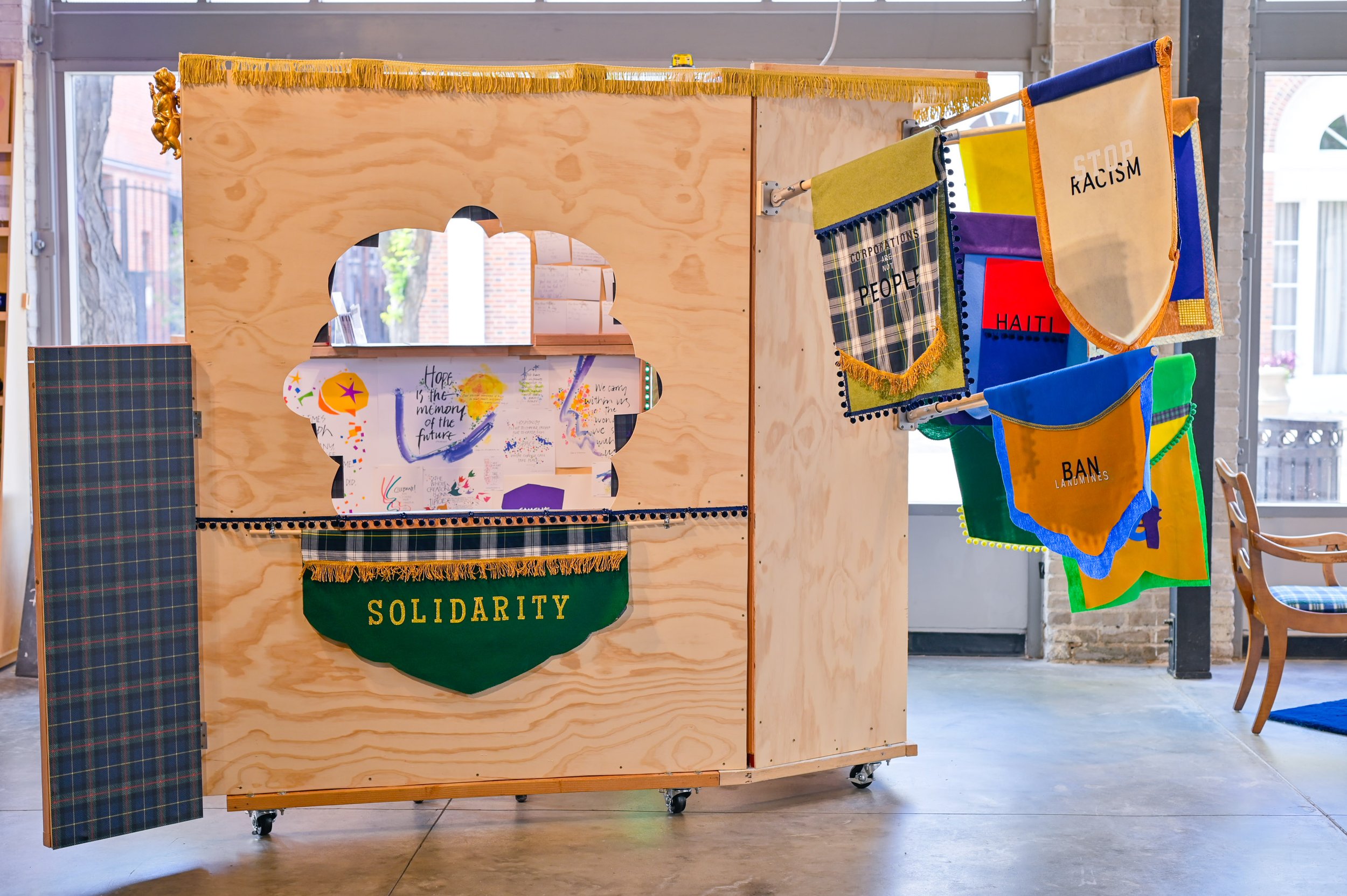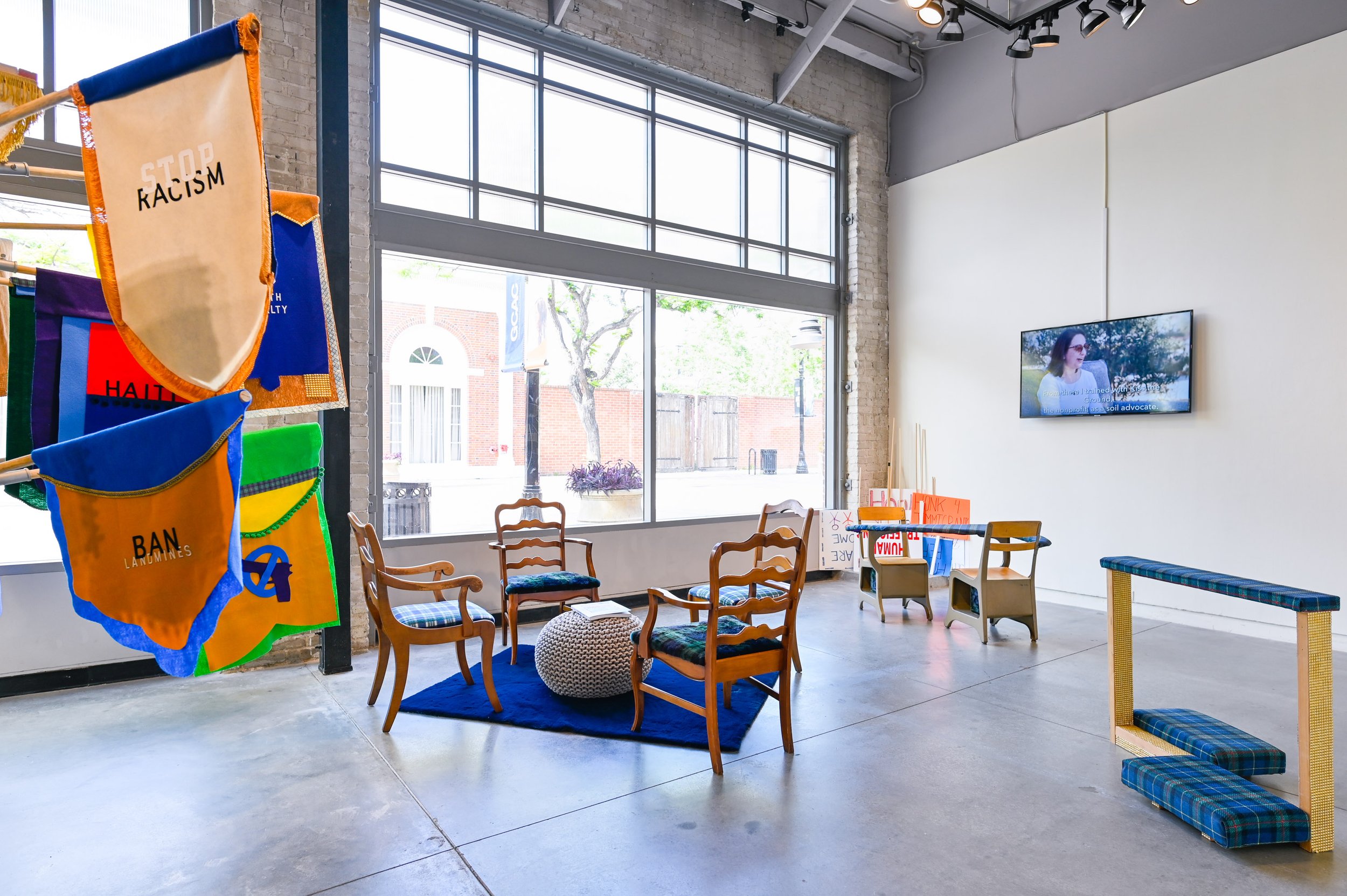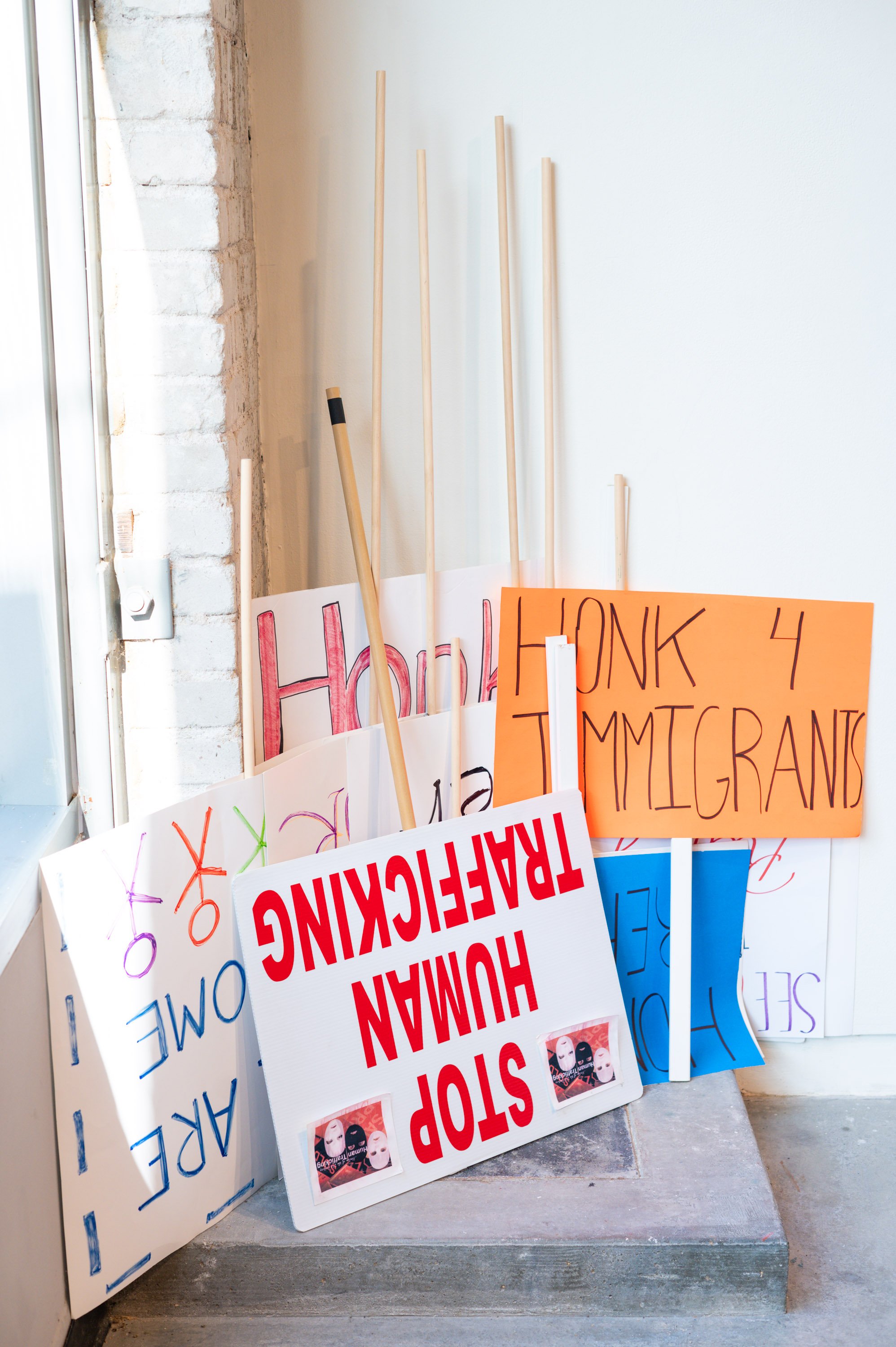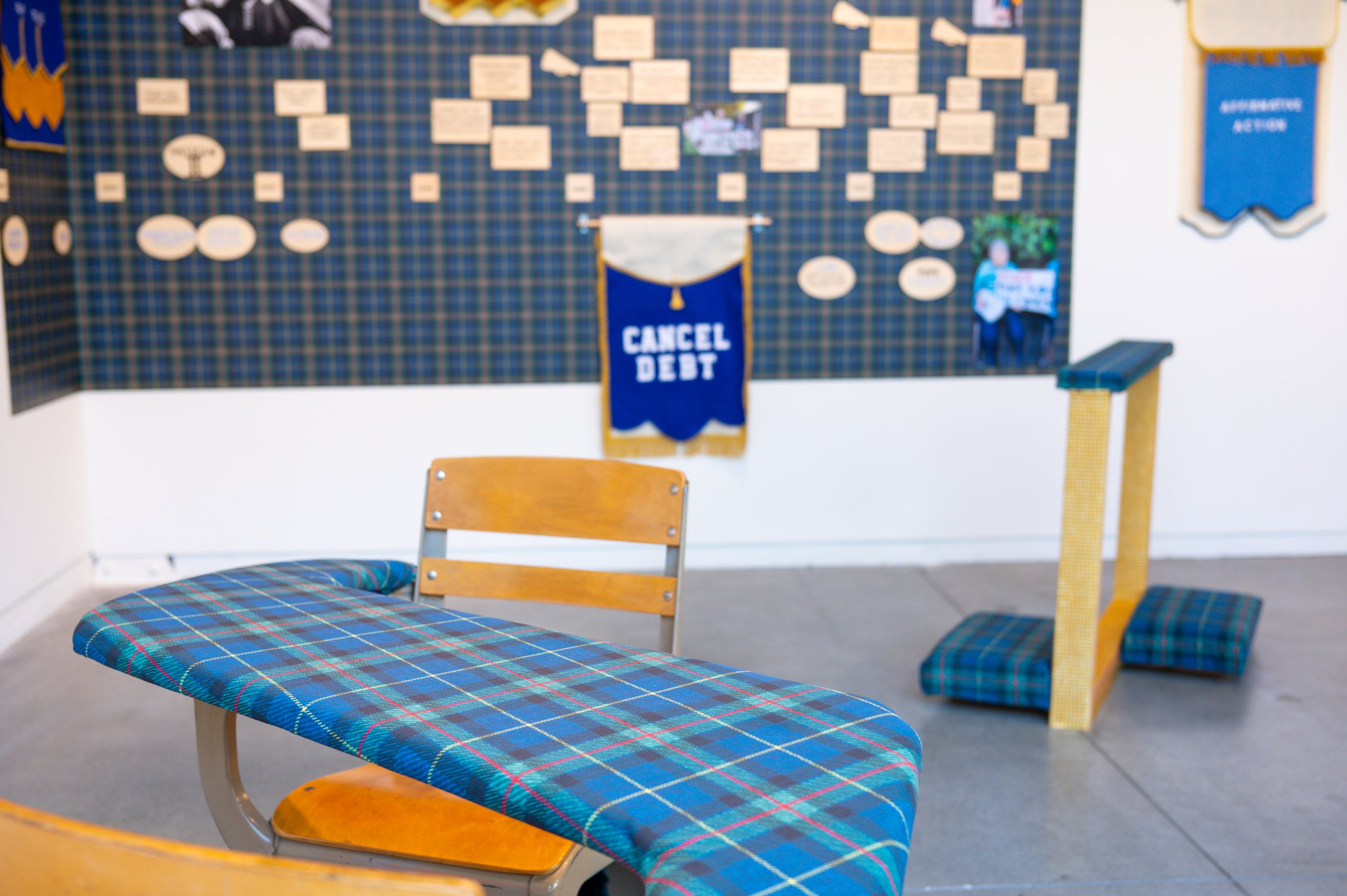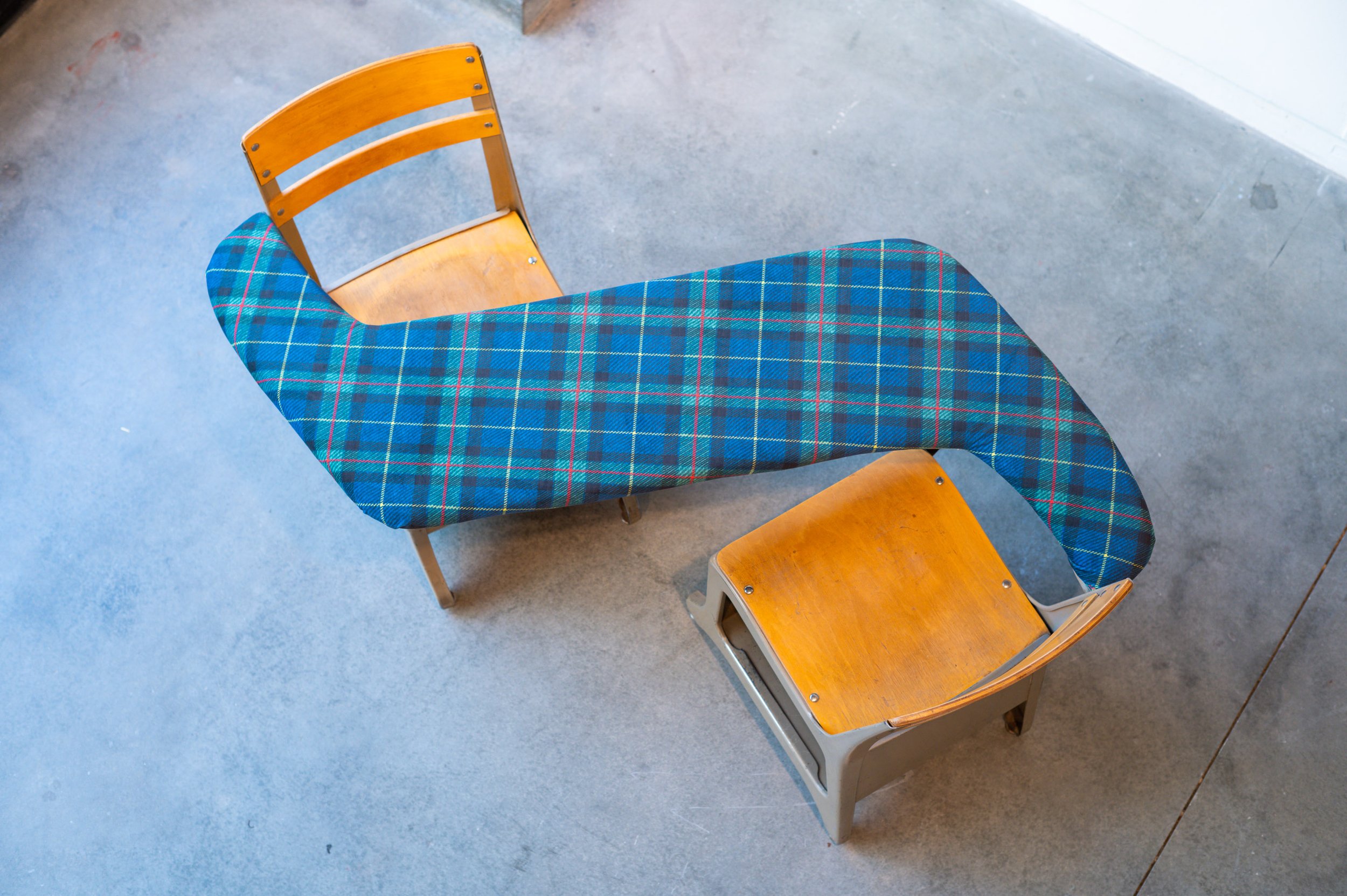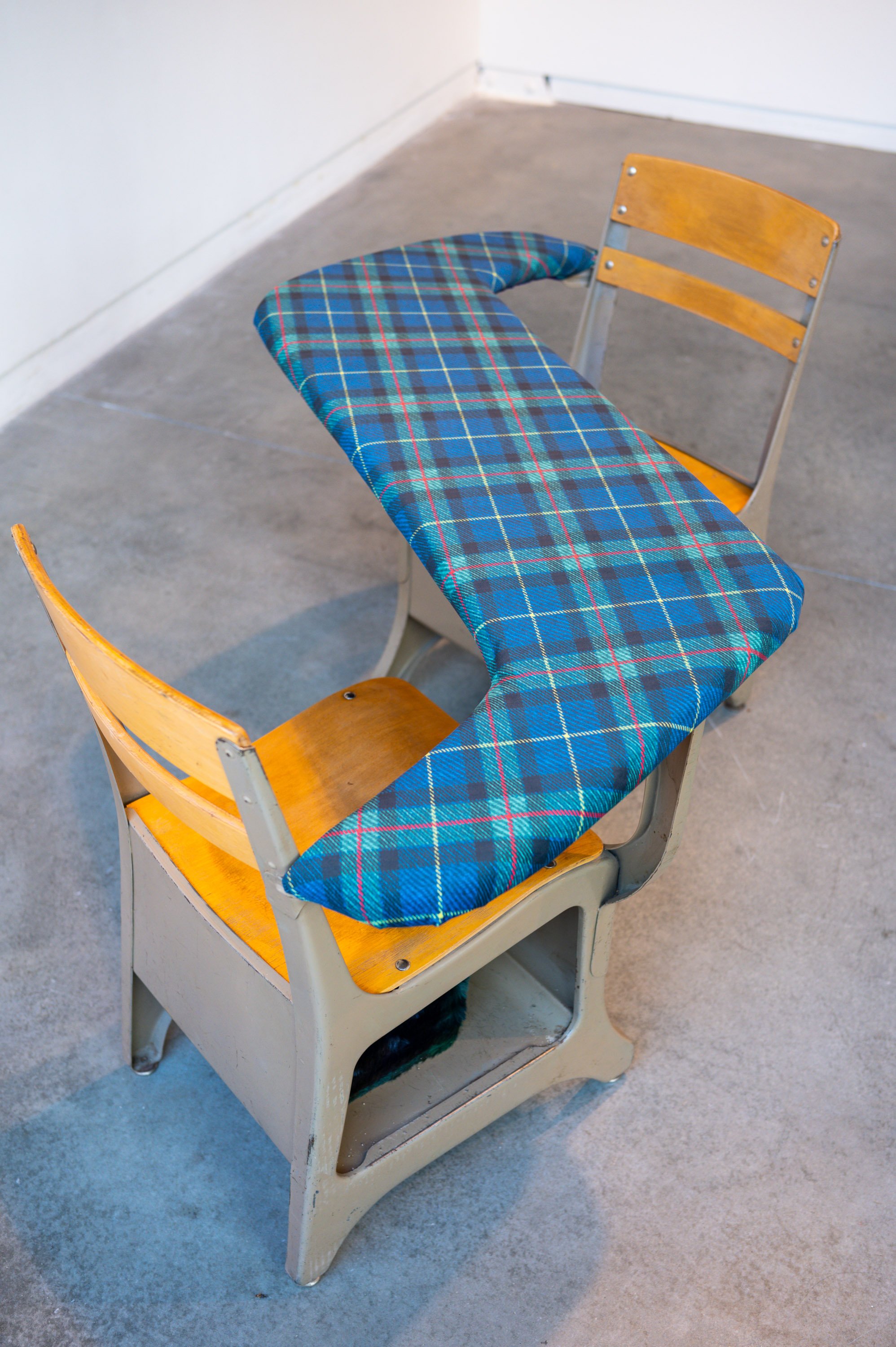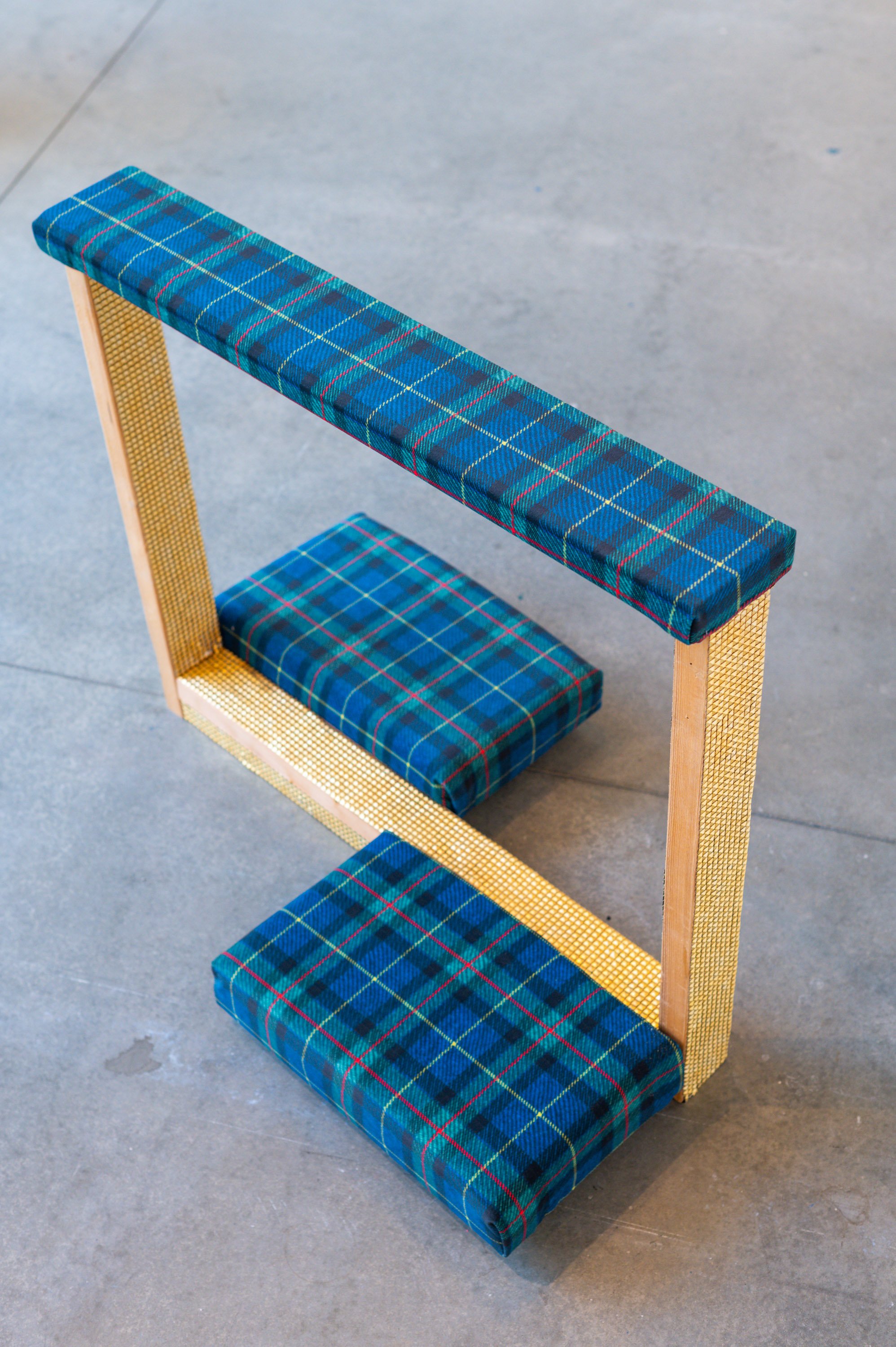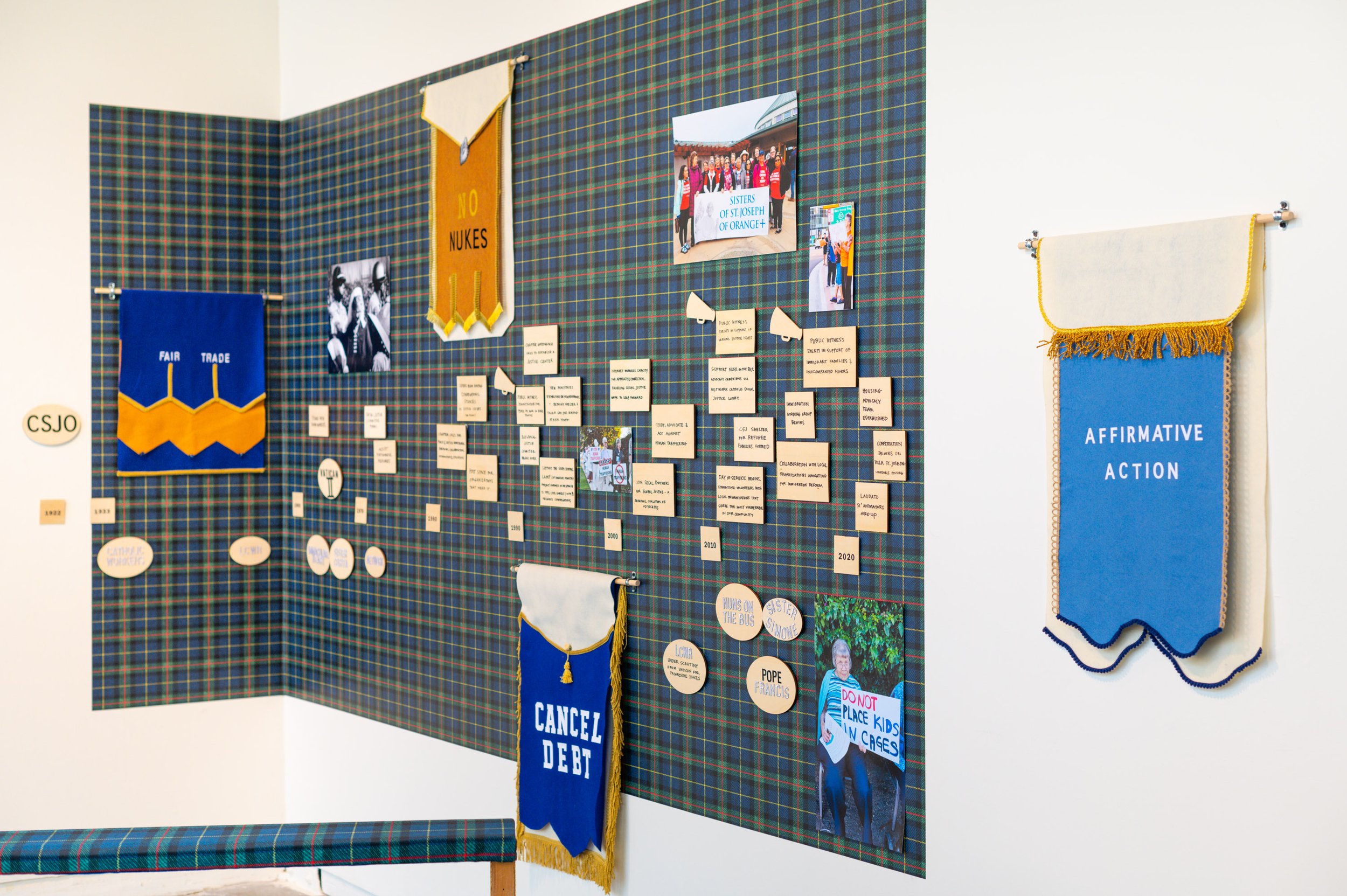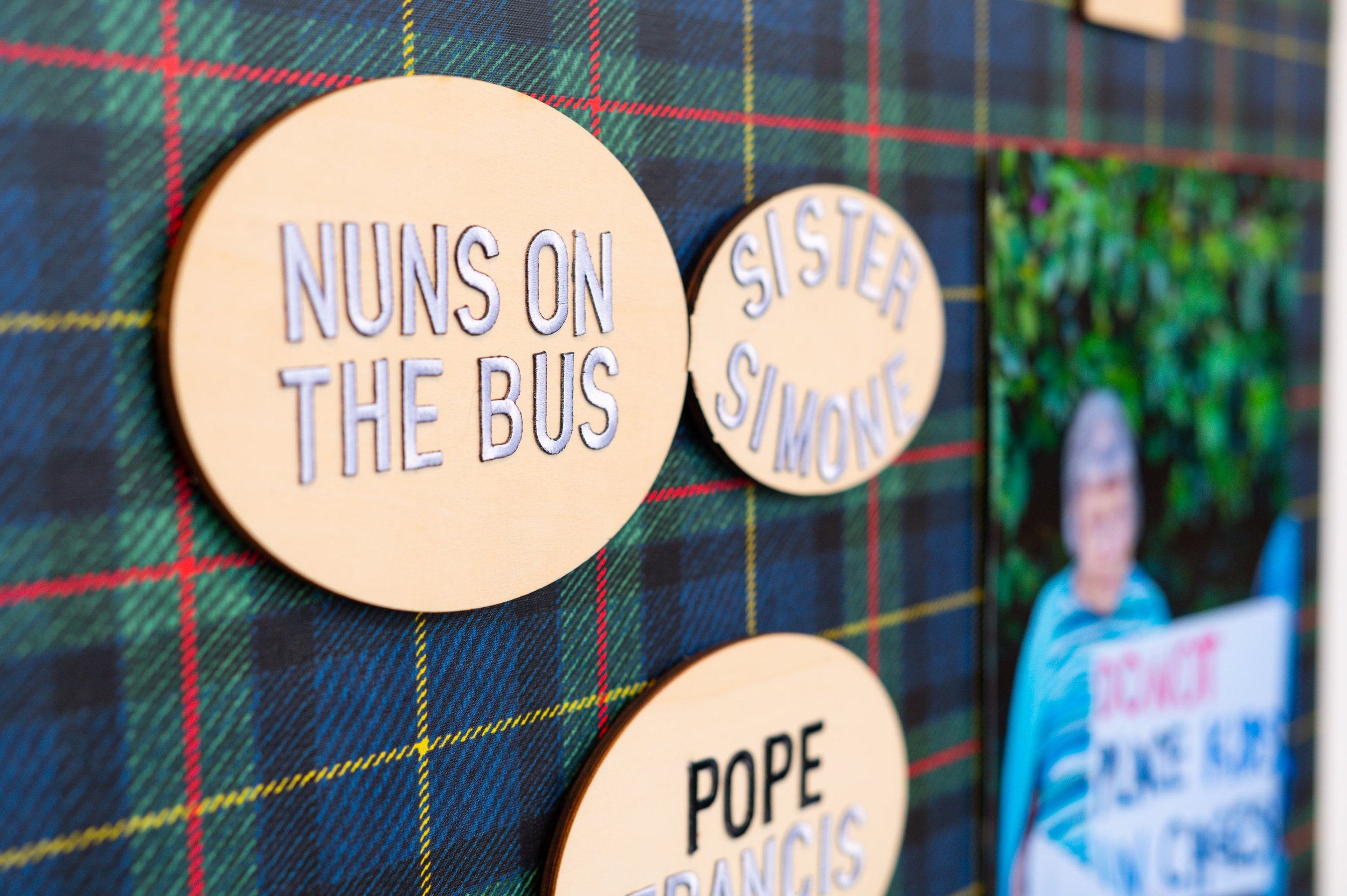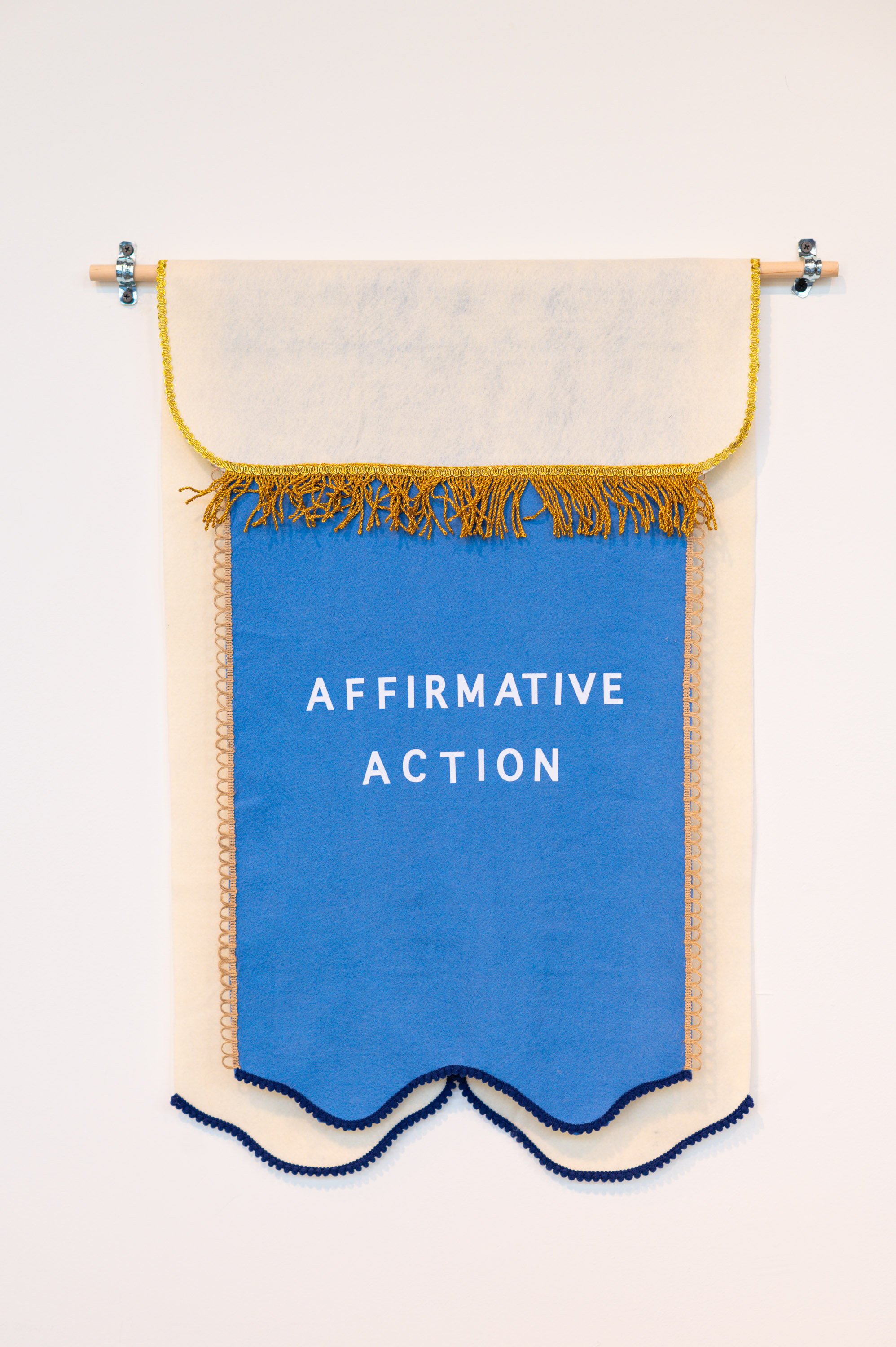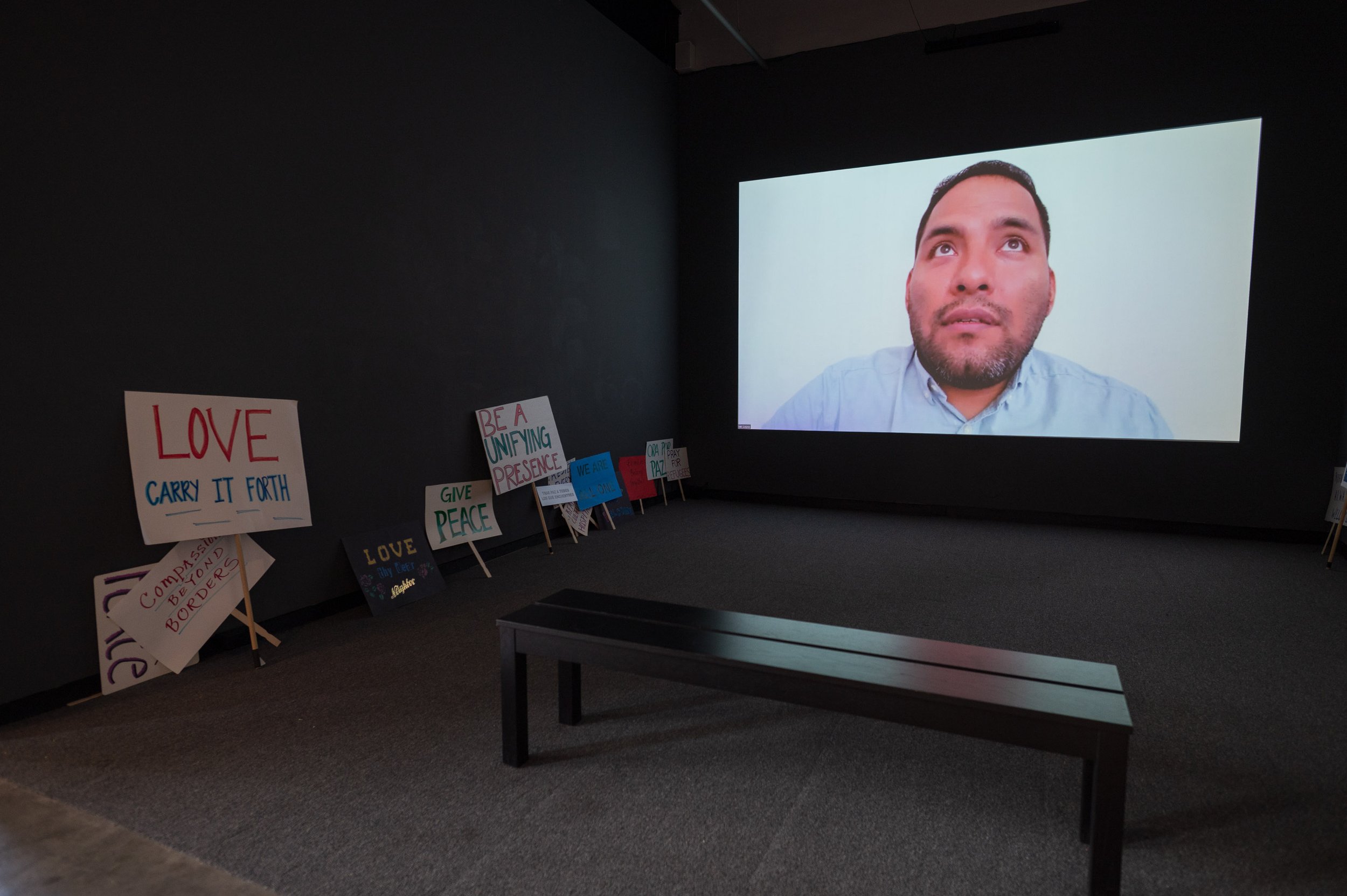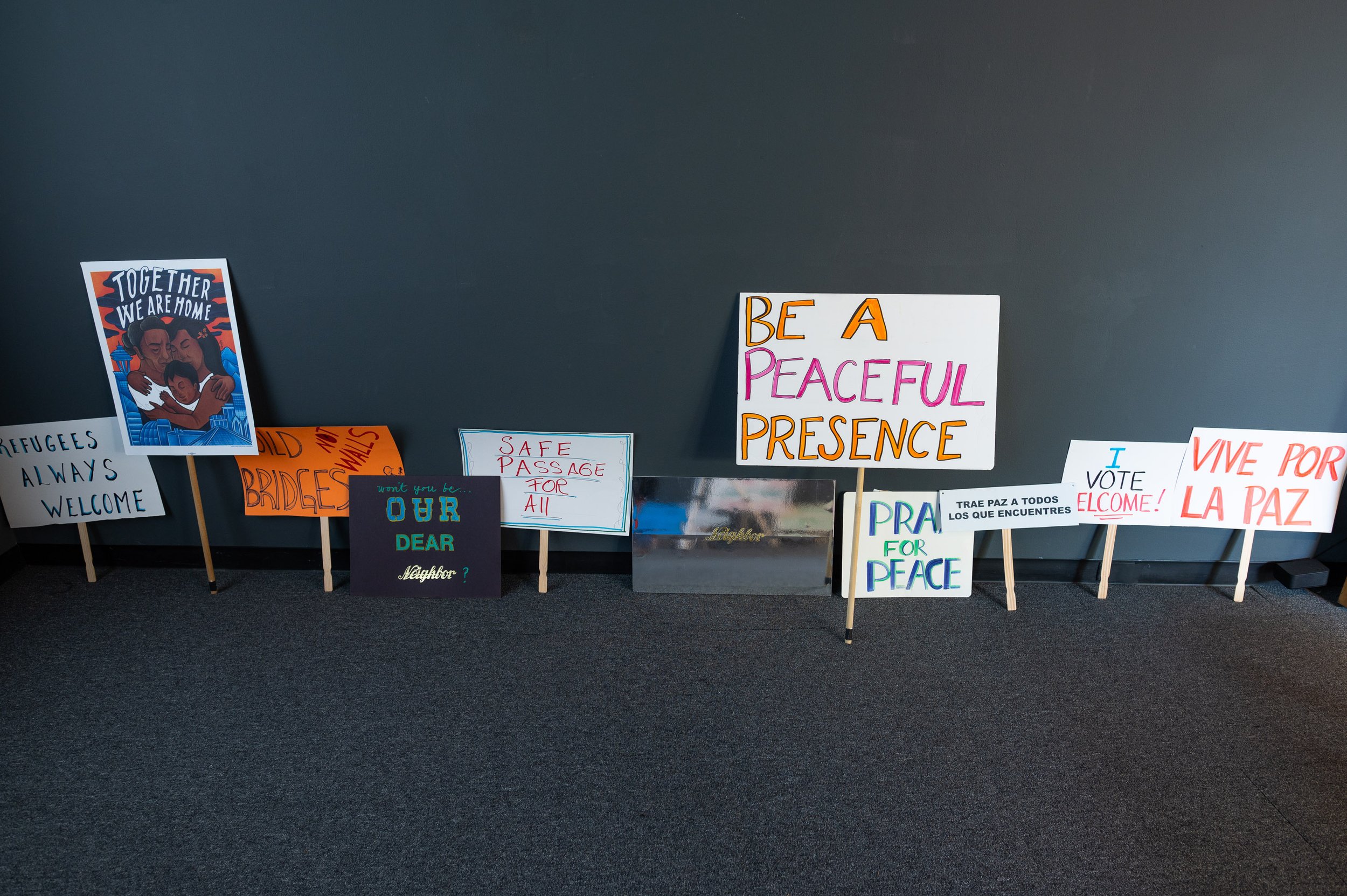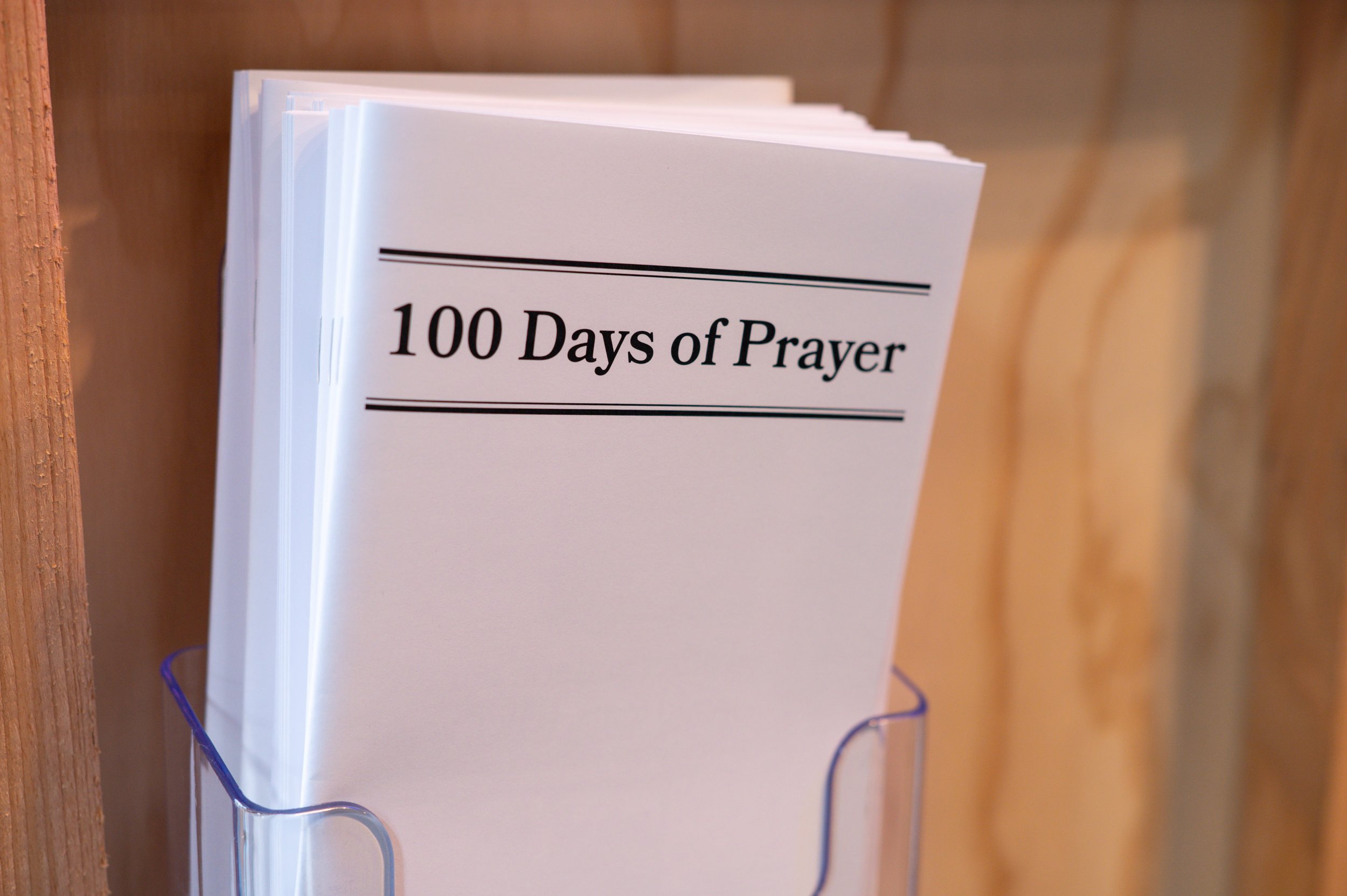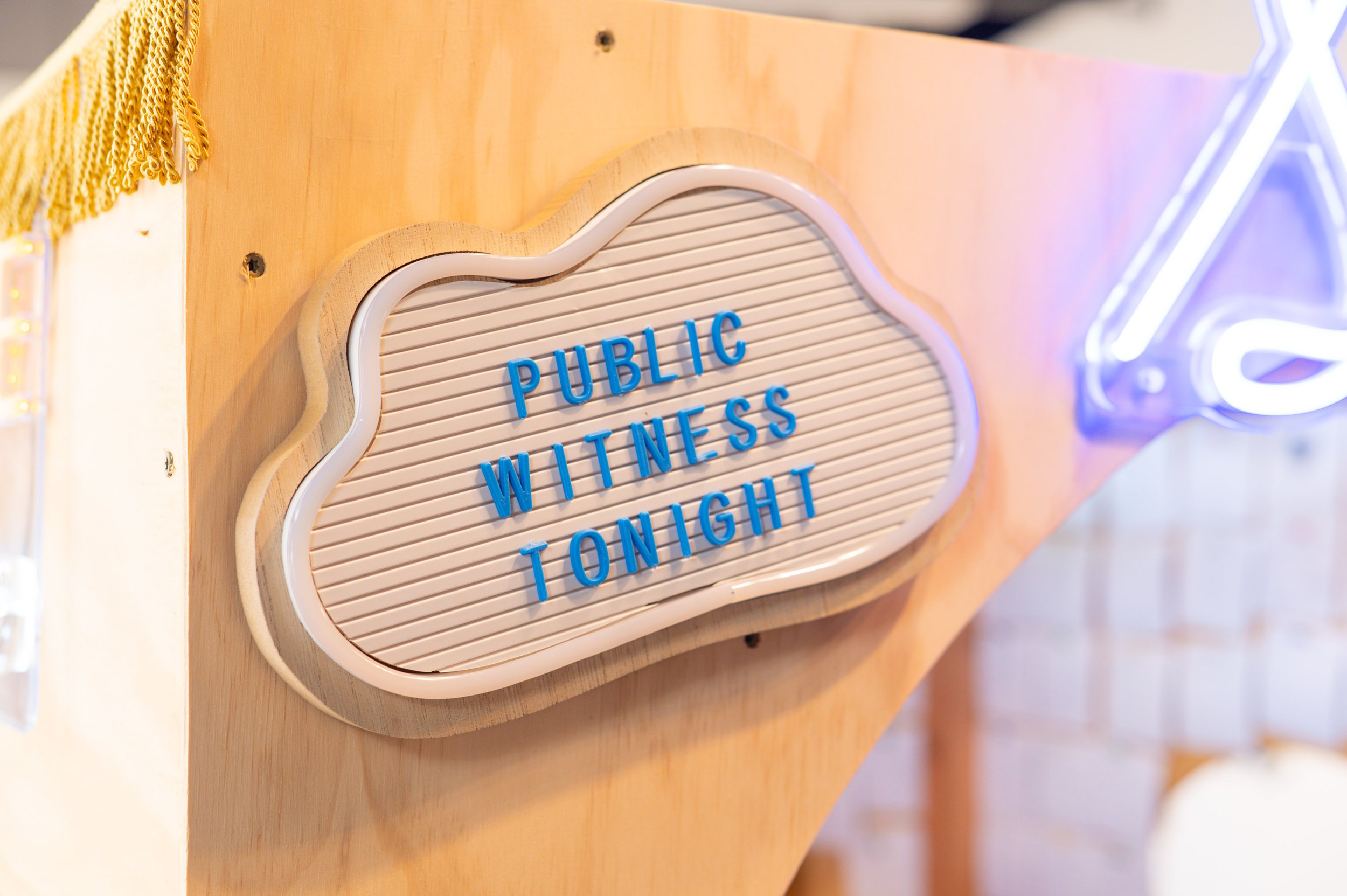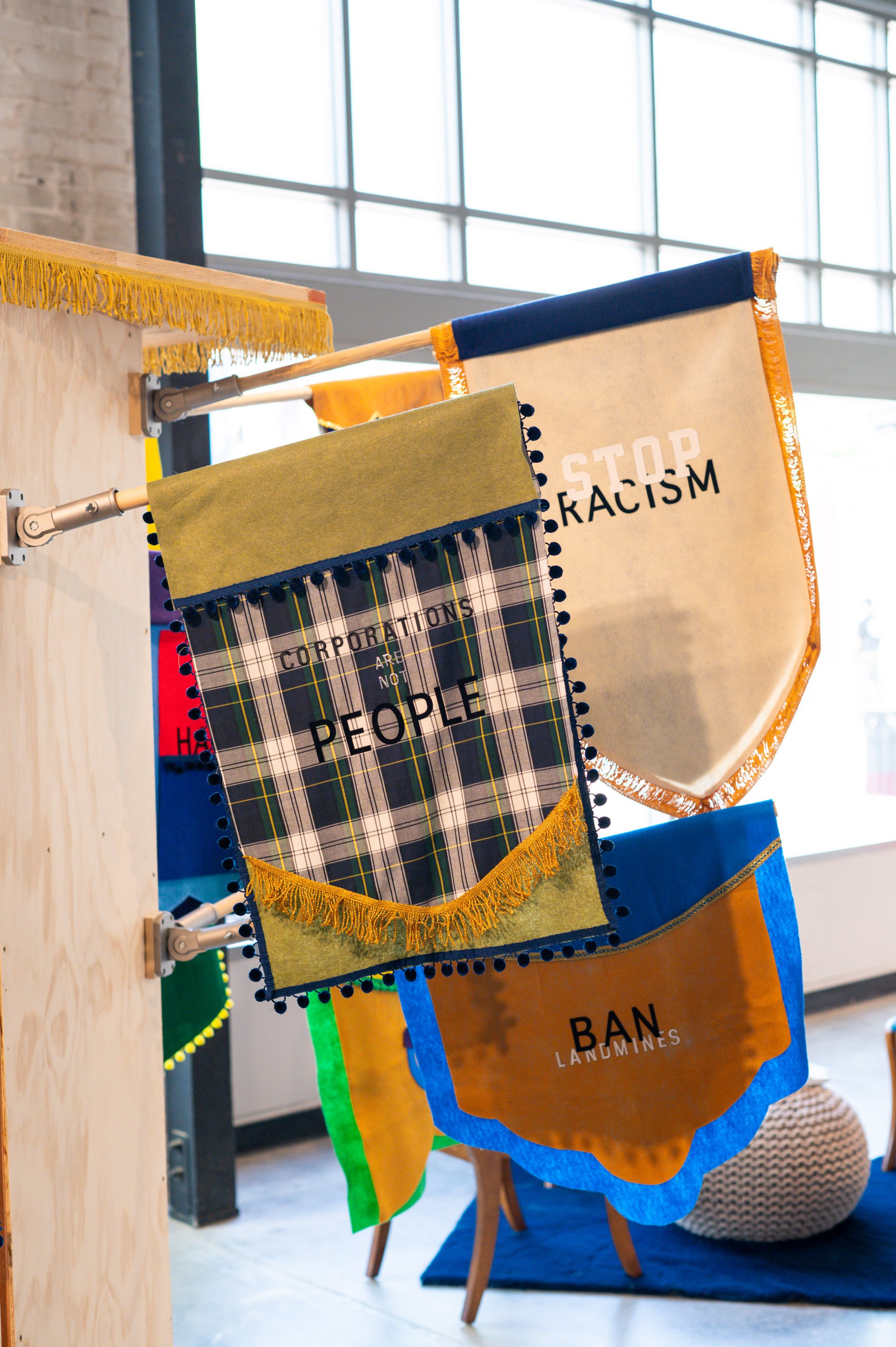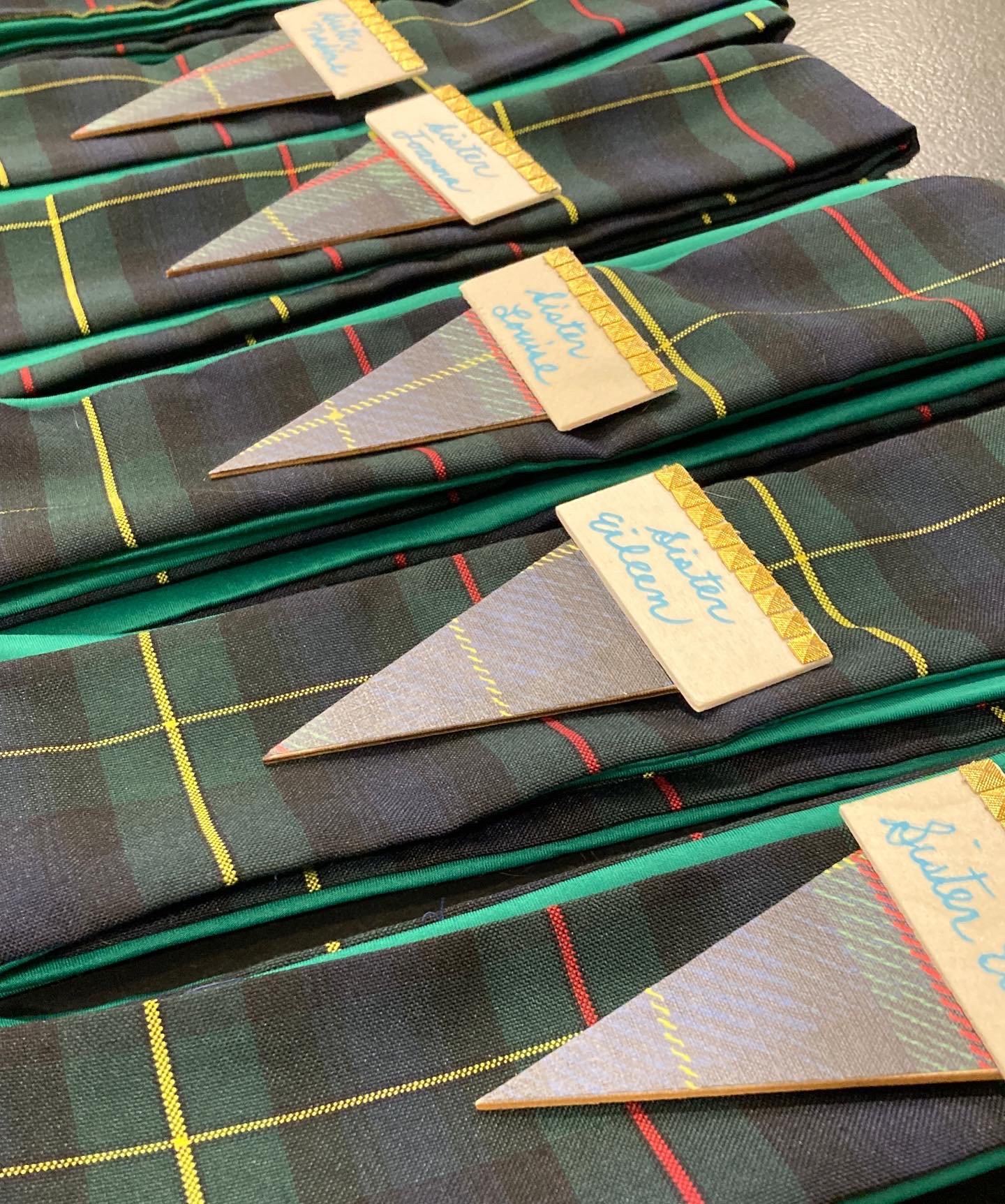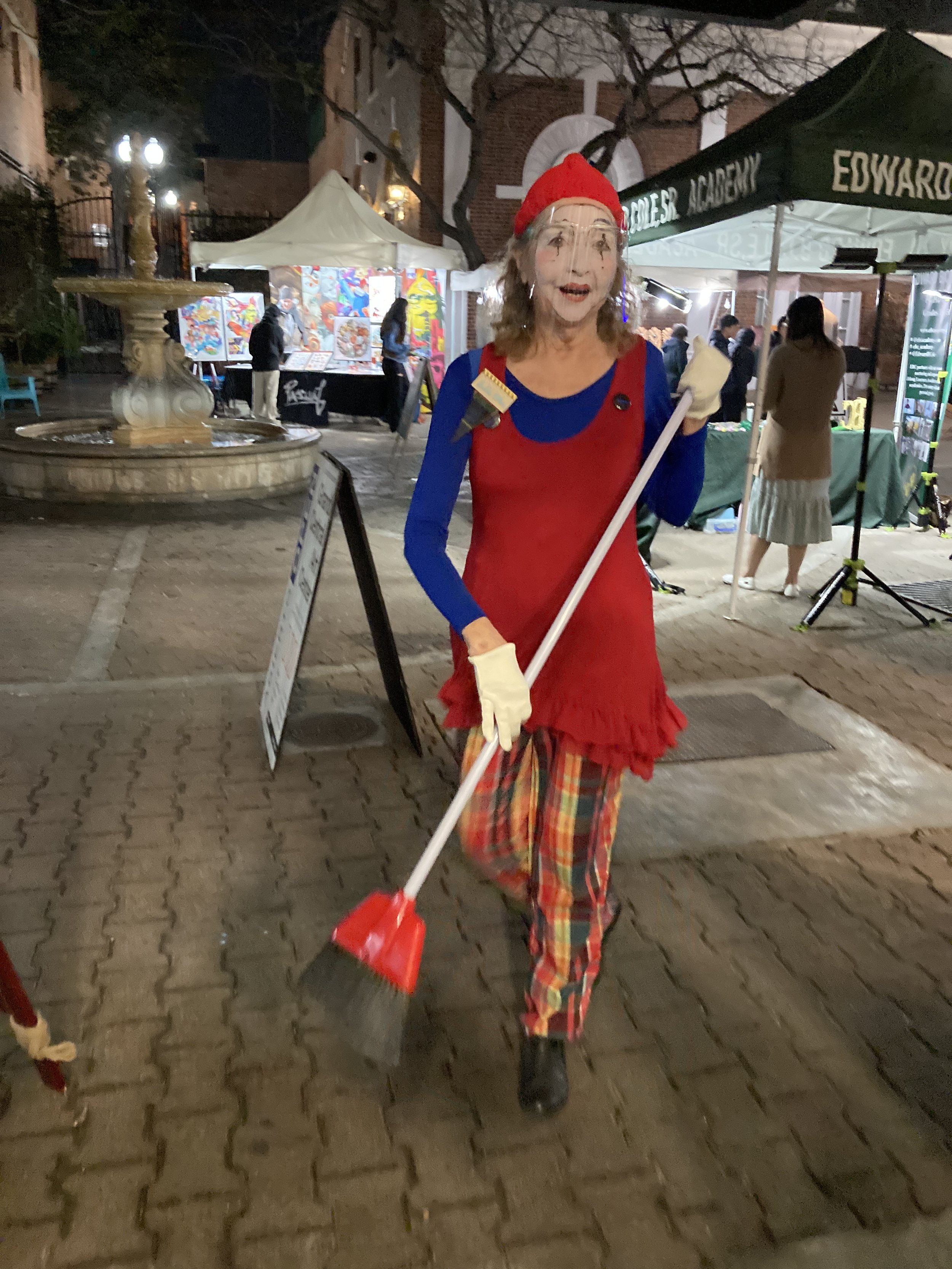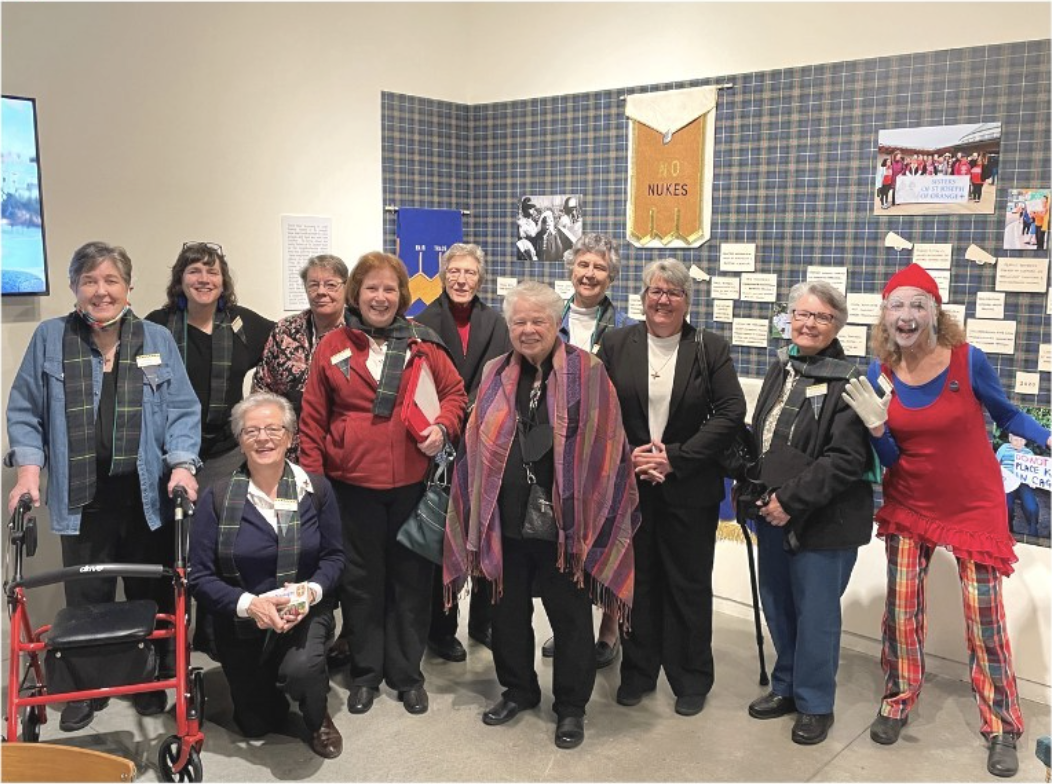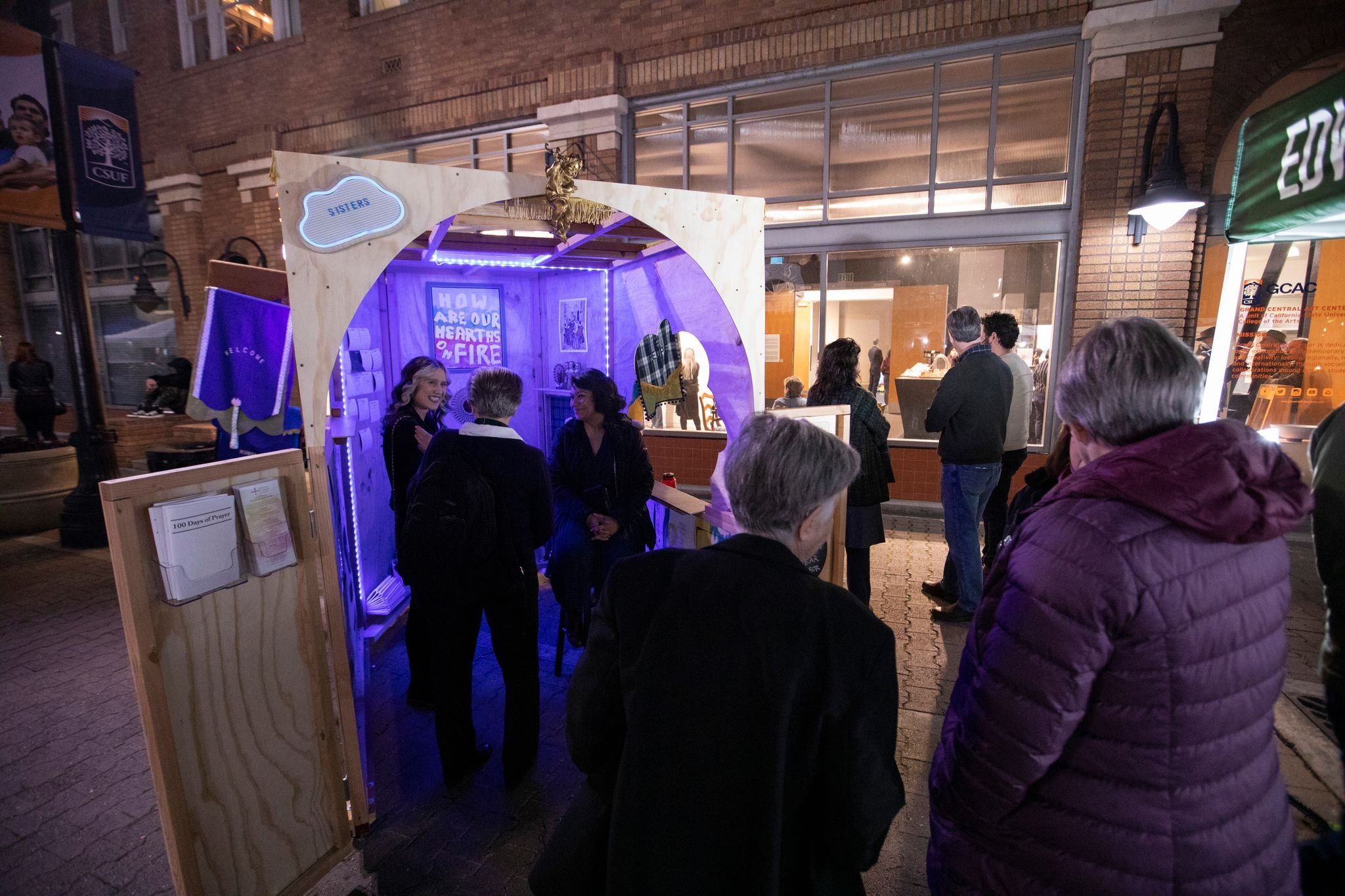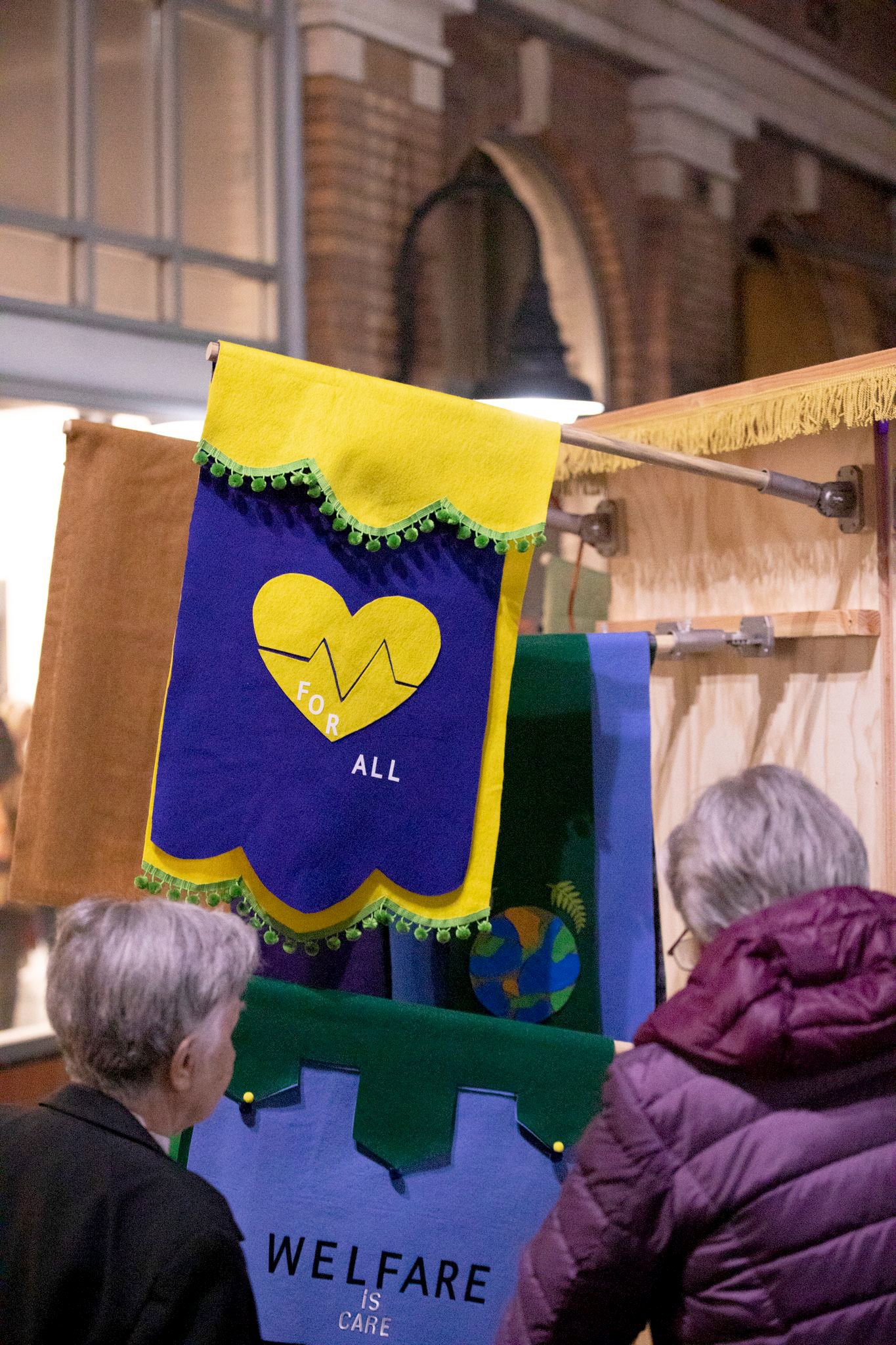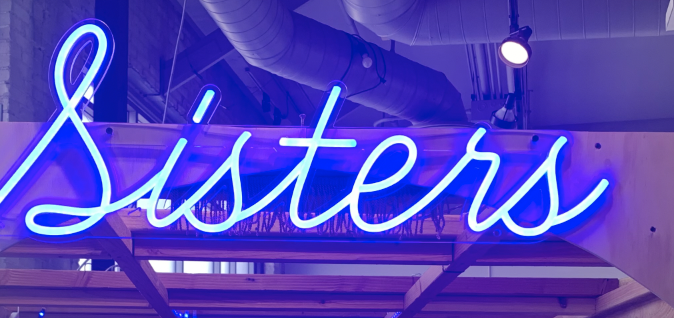Sisters InfoShop
Installation, plywood, pine, altered vintage school desks, velvet, felt, cotton, trimmings, fringe, vinyl, protest signs, archival inkjet prints, led neon, embroidered letters, Social Practice, 2023, Grand Central Art Center, Santa Ana, CA
Sisters InfoShop, an exhibition and socially engaged project, is a platform for the legacy of progressive women religious in California and beyond. With a special focus on the work and lives of the Sisters of St. Joseph of Orange, the project is presented at Grand Central Art Center both as an installation in the gallery as well as a mobile kiosk activated with programming by the Sisters.
The installation includes a timeline and materials from the Sisters’ activism situated within the context of pivotal moments in recent history of the Catholic Church and general societal issues. Additionally, I made and reconfigured seating from vintage school desks and prayer kneelers that become conversational sculptures. Throughout the exhibition is the motif of my childhood Catholic school blue, green and gold tartan plaid.
The public can actively engage with the Sisters inside and around the kiosk on the first Saturdays of each month, through a Human Library, Sister Ellen O’Leary’s miming, a Social Justice Fair, and multiple other socially engaged activations throughout the duration of the show. Walsh has donned the kiosk with a neon sign, murals, hand crafted flags representing the Sisters’ congregational stances, and papered inside with Sister Madeleva’s graphic artworks, which are reminiscent of the late Sister Corita Kent’s artworks. A zine is available to share the Sisters’ “100 Days of Prayer”, their timely response to the 2017 presidential inauguration.
Co-designed with the Sisters of St. Joseph of Orange, this collaborative project is a place for the public to learn about and engage with the Sisters and their work. The overarching theme of their work is Justice, within the framework of “Our Dear Neighbor”, creating welcoming places for belonging, alongside activism, solidarity and policy for disenfranchised communities.
I am interested in what can be learned by creating temporary social justice institutions in a public square, breaking down stereotypes, and revealing the long activist legacy of these Sisters through a feminist lens.
Special thanks to the CSJO Sisters, staff and community, John Spiak, Tracey Gayer and the staff at Grand Central Art Center, Nathaniel Parsons, and the Andy Warhol Foundation for the Visual Arts.
